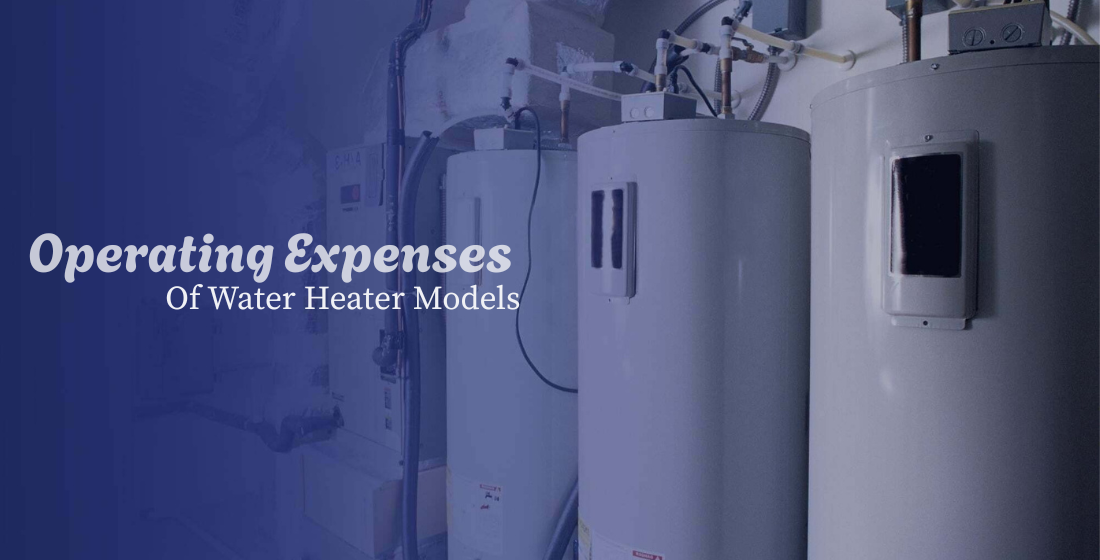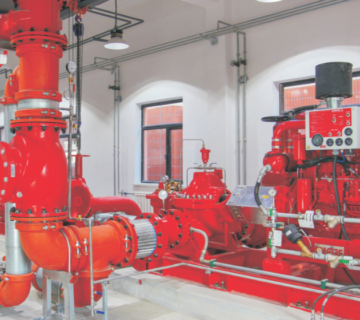Comparing Operating Expenses of Different Water Heater Models
A water heater is a requirement in every household, which supplies warm water for regular tasks such as bathing, cleaning, and cooking. Beyond the initial procurement price, however, selecting the appropriate water heater is more than only to meet the eye. Operations have played an important role in identifying the long-term cost-evilness of various water heater models by changing the cost-energy use, maintenance, and longevity. In this blog, we will compare the operating costs of various water heaters such as tanks, tankless, heat pumps, and solar water heaters, so you can make a well not informed decision that meets your domestic needs and budget.
1. Tank Water Heaters
Traditional tank water heaters are common in many households due to their lower initial cost and ease of installation. These units store a set amount of hot water in a tank and heat it continuously, whether it is being used.
- Energy Consumption: Tank water heaters generally use more energy since they keep the water warm at all times, even when not in use. This is referred to as standby heat loss.
- Average Operating Costs: Depending on average energy prices, tank water heaters have an average running cost of between $200 and $600 per year, depending on tank size and usage habits.
- Maintenance: Minor maintenance, like tank flushing to avoid sediment accumulation, is required but inexpensive.
- Lifespan: The units typically last 8–12 years, which would require you to pay for a replacement earlier than with other models.
2. Tankless Water Heaters
Tankless, or on-demand, water heaters only heat water when used. They are becoming increasingly popular because they are energy-skilled and save space.
- Energy Consumption: Tankless devices only consume energy when required hot water, eliminating standby heat loss. They are thus about 24–34% more energy-efficient for houses with 41 gallons or lower water consumed per day.
- Average Operating Costs: Tankless water heaters usually cost annually between $ 150 and $ 400 to operate based on water consumption.
- Maintenance: To avoid mineral deposits, it is especially required to be diligent in hard water areas. Maintenance expenses are moderately higher than the tank model.
- Lifespan: Tankless units can survive for over 20 years. If maintained well, it provides long-term investment.
3. Heat Pump Water Heaters (Hybrid)
Summer pump water heaters transfer heat from the ground or air and use electricity to heat water. They are more efficient, although their initial cost is high.
- Energy Consumption: Models consume 2-3 times less energy than traditional electric water heaters, which significantly reduces energy expenditure.
- Average Operating Costs: The operating cost varies from $ 100 to $ 300 per year, depending on the electricity rates in the local area.
- Maintenance: Regular cleaning of filters and appropriate airflow is required to ensure it is usually within strength.
- Lifespan: Such systems can last 10-15 years with proper maintenance.
4. Solar Water Heaters
Solar water heaters are eco-friendly and harness the sun’s energy to heat water, making them ideal for environmentally conscious households.
- Energy Consumption: Practically no operating energy is spent if sunlight is abundant, yet auxiliary heating may be necessary on cloudy days or in winter.
- Average Operating Costs: Annual operating expenditure is very low, usually under $ 100, on the basis of climate and system efficiency.
- Maintenance: Maintenance consists of regular cleaning of solar panels and heat-transfer fluid inspections, which can be somewhat expensive.
- Lifespan: Solar systems have a lifetime of 15–20 years, but auxiliary components such as the pump may require replacement.
Conclusion
Choosing the appropriate water heater model depends on the initial cost, operational cost, and weighing the energy preferences of your home. While traditional tank heaters are inexpensive up-front, their annual operating costs and low lifespan can make them less economical over time. Tankless units provide energy efficiency and durability at the cost of a high, advanced price. Heat pump water heaters meet a medium land with medium energy costs and efficiency, while solar water heaters provide high environmental benefits and low recurring expenses that are at the cost of a high advance investment.
Knowing the operational costs of each model, you are able to choose a water heater that will suit your budget, environmentally friendly objectives, and home needs, ensuring comfort and savings for many years to come.
If you’re exploring more efficient water heating solutions, you may also want to consider the benefits of transitioning your entire system. Our guide offers insights into modernizing building heating infrastructure, improving energy efficiency, and reducing long-term operational costs.
How-To: Choose the Most Cost-Efficient Water Heater for Your Home
- Assess Your Household’s Hot Water Usage
Estimate your daily hot water consumption in gallons.
Consider peak usage times (e.g., mornings, evenings, winter months). - Evaluate Energy Sources Available
Determine if your home uses electricity, natural gas, or has solar access.
Some systems, like heat pumps and solar heaters, may not be suitable for all homes. - Set Your Budget — Upfront & Long-Term
Consider both purchase and installation costs.
Review annual operating costs, maintenance requirements, and expected lifespan. - Compare Energy Efficiency Ratings
Look for the Energy Factor (EF) or Uniform Energy Factor (UEF) on product labels.
Higher ratings mean more efficient units and lower operating costs. - Check for Rebates or Incentives
Visit local utility or government websites for tax credits or rebate programs, especially for heat pumps or solar units.
- Consult a Professional
A licensed plumber or HVAC professional can assess your home and recommend the most suitable option for long-term savings.
Frequently Asked Questions
Solar water heaters typically have the lowest operating costs (often under $100/year), followed by heat pump models. However, this depends on your climate and energy rates.
It refers to the energy wasted when tank water heaters keep water hot even when it’s not being used, leading to higher utility bills.
Not always. Heat pumps need adequate space and airflow, while solar systems require good sun exposure and roof space. Always consult a specialist.
Absolutely. Higher efficiency models usually save money over time through reduced utility bills and longer lifespans.
Tank: Flush annually, check the anode rod.
Tankless: Descale annually, especially in hard water areas.
Heat Pump: Clean filters and ensure airflow.
Solar: Clean panels and check system fluid.
If your heater is over 10 years old, shows signs of rust, leaks, or inconsistent water temperature, it’s time to evaluate a replacement.





No comment